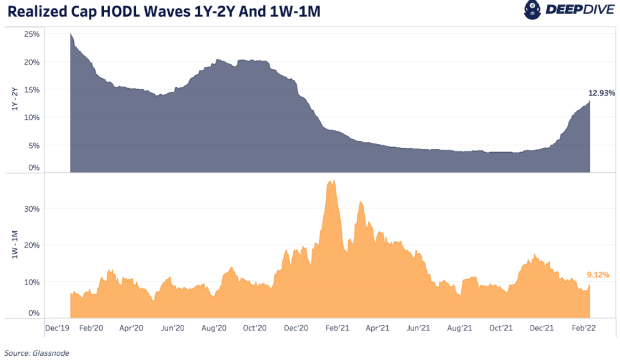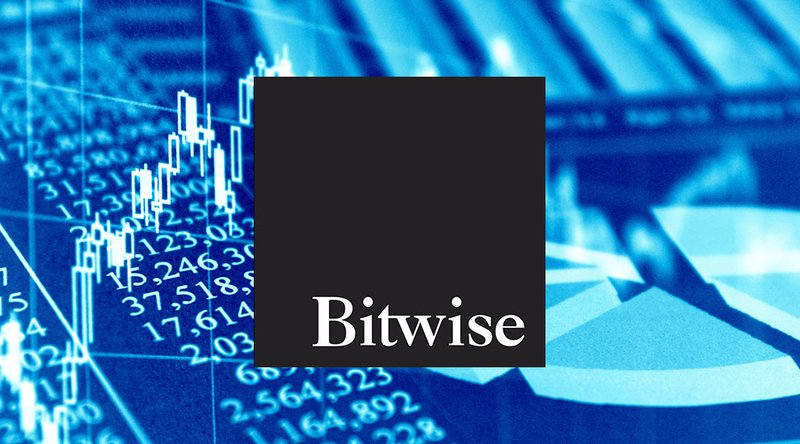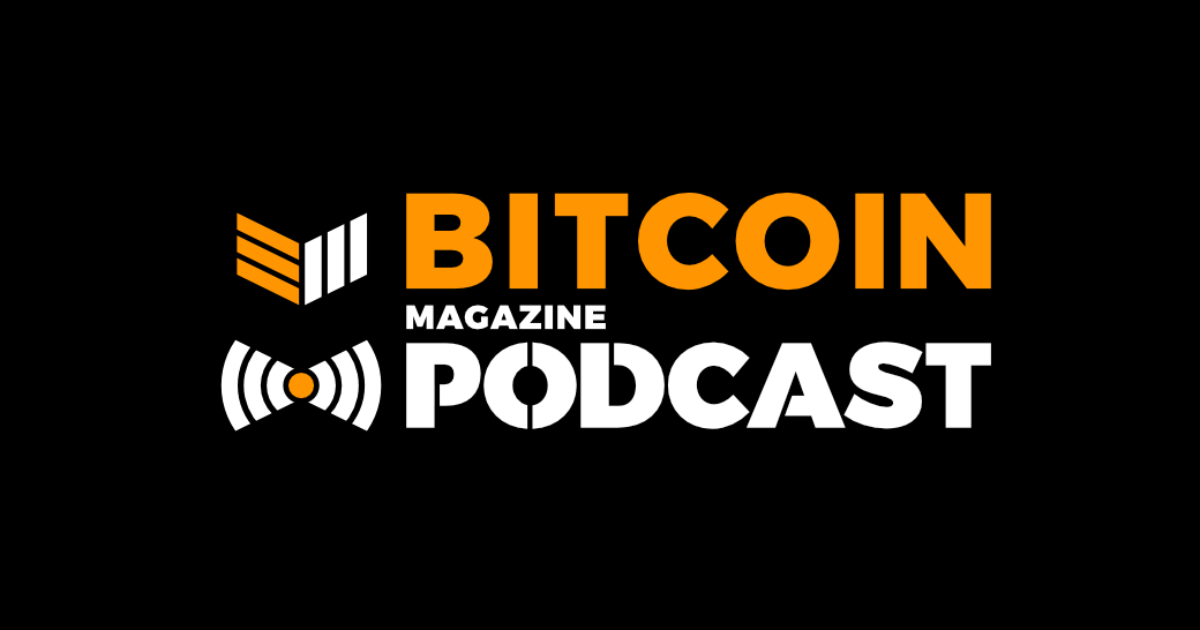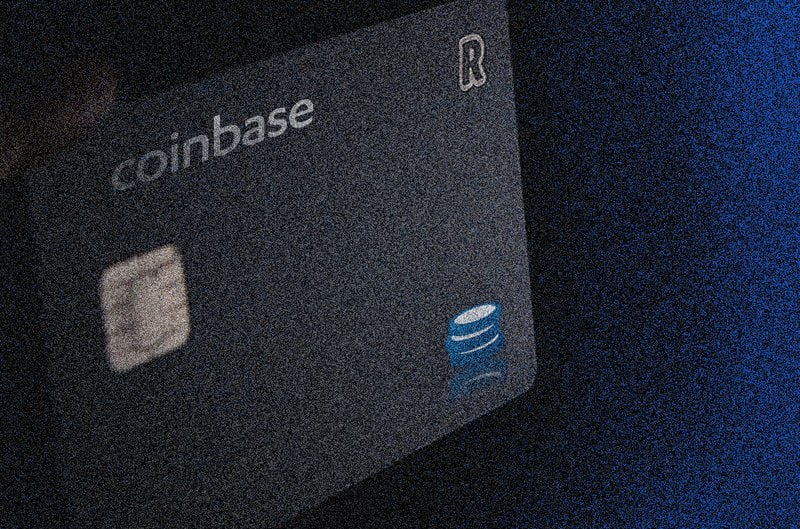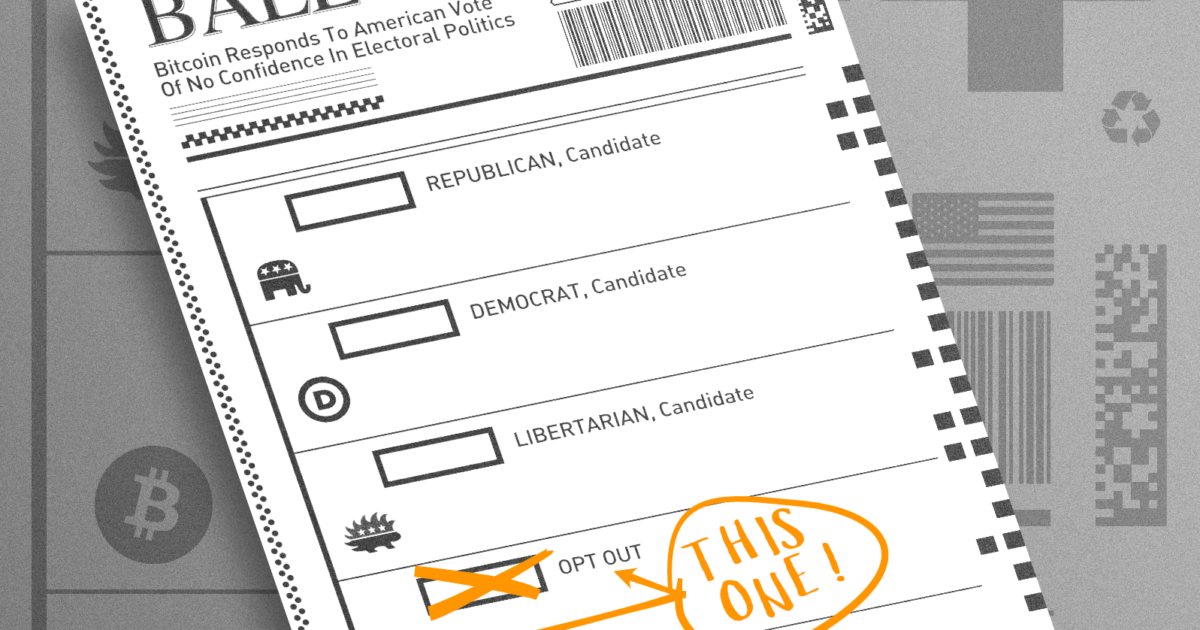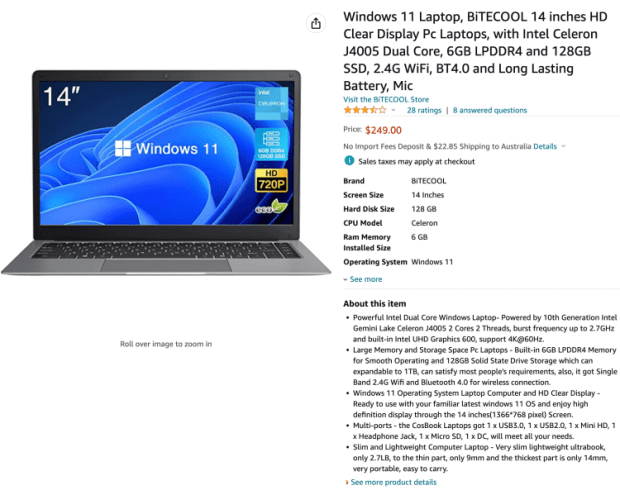Bitcoin HODLer Accumulation Is Increasing
We look to be headed toward a trend of increased BTC holder accumulation following a local bitcoin price top.
The below is from a recent edition of the Deep Dive, Bitcoin Magazine’s premium markets newsletter. To be among the first to receive these insights and other on-chain bitcoin market analysis straight to your inbox, subscribe now.
A key on-chain metric that we’ve discussed before, and that we will cover today, is the Realized HODL (RHODL) Ratio. The ratio uses realized cap HODL waves, which takes the original HODL Wave metric and weights the UTXOs in each age band by their realized price. Specifically the Realized HODL Ratio uses the one-week and the one-to-two-years Realized Cap HODL Age bands.
For a more in-depth overview of this metric, check out The Daily Dive: HODL Waves And Realized HODL Ratio.
By using this metric, we can better understand what’s happening with younger coins versus older coins. As younger coins become more dominant and the ratio rises, long-term holders hold less of the realized market value. As the ratio falls, long-term holders hold more market-realized value compared to younger coins. An overheated market would show much higher younger coin dominance.
In the previous bitcoin tops in 2021, we didn’t see the rise of younger coins relative to older coins like previous cycles. We saw the RHODL Ratio rise throughout the year, but it never became heated or overheated like the 2016 cycle. This can be due to a changing cycle, a more maturing market or the fact that we didn’t see the significant wave of new demand, younger coin buying, seen in past cycles.
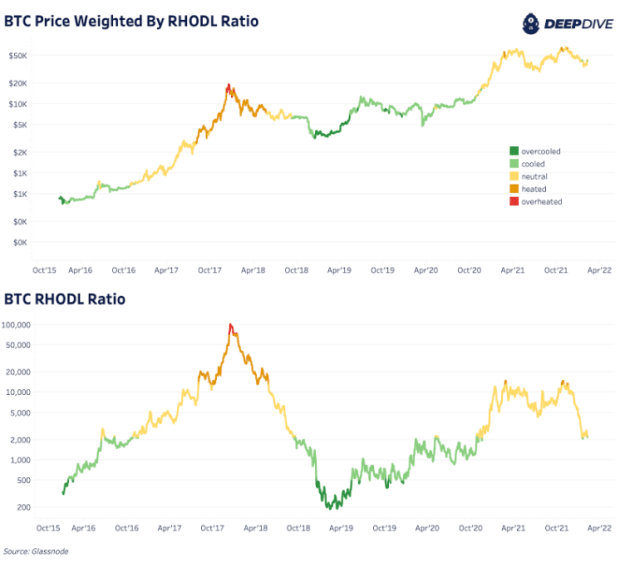
Over the last month, we’ve seen a significant increase in the HODL Waves and Realized Cap HODL Waves one-to-two-years age bands. More coins are aging into this band and are taking up more economic weight in the RHODL Ratio calculation as more long-term held supply comes into the market. As a result, the RHODL Ratio is right around its 50th percentile inbetween a neutral and cooled state.
Historically, we’ve seen the one-to-two-years age band peak around 50% of supply, while it’s currently at 12.93%. We look to be headed into a trend of increased holder accumulation post a local bitcoin price top. As accumulation continues and older coins age in, the RHODL Ratio falls and makes bitcoin a more attractive historical buy.
